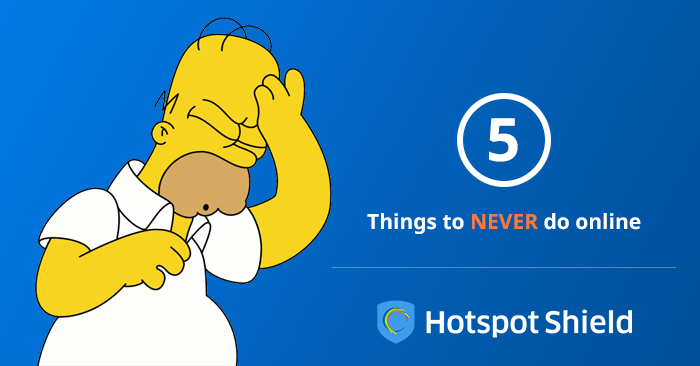How to get a Finnish IP address
The easiest way to improve your digital privacy is to switch your IP address using a VPN. We’ll …


Your online activities can have a dramatic impact on your Internet privacy. Setting boundaries for your online activities will help incorporate these practices into your daily routine to stay safe and keep your bank accounts secure every time you go online, no matter where you live, work, or travel.
You might have a well-trained eye to identify online scams and spam-related email messages, but there are new ways online thieves try to steal your personal information. Have you filled out a pop culture quiz online in the last six months? Online surveys, even from seemingly reputable websites, can log your clicks, catalog your answers, and funnel that information to marketers who will flood your inbox with unwanted messages.
The best defense you have against these tactics is to avoid clicking those links and stop responding to their messages. Don’t even open the emails — just move them to the junk folder and flush them out of your account. That survey promising to tell you once and for all which Game of Thrones character you are is tempting, but the risk to your financials and online privacy isn’t worth it.
Maybe you decide to do a little online shopping on a coffee shop’s free Wi-Fi connection. Are you checking your checking account balance as well? Chances are good that the connection has no passwords or extra security measures to prevent data breaches by third parties. An open Internet connection that has zero encryption and no password protection is an open barn door to your sensitive financial information. Hackers can intercept payment information in transit on these connections, often without your knowledge. You’re basically waving your monthly statement in the street and begging for someone to take a peek.
If you’re on an open connection, protect yourself by using a virtual private network (VPN) service like Hotspot Shield. The downloadable software sets up its own secure connection between your computer and its own website, allowing you to shield your browsing activities and private information. The service also stops incoming malware, meaning your computer won’t catch a career-ending virus while you’re trying to shop online.
Mobile and desktop apps offer great convenience in augmenting your online experience by making once-complicated tasks simple and easy. With the right app, you can get highly targeted news about your favorite sports teams, shop specific websites, and play retro games that disappeared from shelves decades ago. The online security threat apps pose comes in the form of the permissions they demand to use your device.
Information technology firm Gartner, Inc. estimates that more than 75 percent of mobile apps failed basic security tests in 2015. Do you really want your apps having access to your phone’s SIM card number, your bank account information, and your device carrier? Avoid the potential risk to your Internet privacy by downloading only trusted apps from reputable companies. Read the permissions the app is going to ask for before you download it. If you’re uncomfortable with the depth and breadth of its requests, don’t add it.
Saving passwords in your favorite web browser is convenient, but it also presents a massive security threat. Browser hijacking is real and it only takes a couple of lines of injected code from any website that supports display advertising to alter your settings and make stored passwords vulnerable. If you’d rather not write all your passwords down manually, you should secure your IP address with a VPN service. By masking your IP, you shield your device’s identity as well as your own, keeping your browsing history anonymous and out of the reach of would-be identity thieves.
The Hotspot Shield VPN can mask or alter your device’s IP address, creating a new unique number every time you connect to the Internet so hackers can’t track it back to your device. Essentially, they switch your computer’s own native IP address with a random one that lives on Hotspot Shield’ servers, meaning no one is going to intrude on your web browsing.
If you’re not on a secure Internet connection, then you have no business sharing work information that could be harmful in the wrong hands. Hackers stealing company secrets could easily sell them to the highest bidder, or worse, release them to public, harming your employer’s ability to safeguard their intellectual property. Either scenario isn’t conducive to your long-term, gainful employment. You should also avoid posting about work topics on social media as competitors could check brand mentions online and use that information to gain an advantage.
Sharing your geographic location, just like work talk, isn’t smart when you’re browsing online. Websites now commonly ask your browser for permission to get your physical location, which a nefarious third-party could use to find you in the real world. Never broadcast your location through social channels and make sure you block geo sharing by using a VPN such as Hotspot Shield.
Bad online habits can lead to months worth of credit problems, stolen personal information, and difficult conversations with bosses and friends alike. Don’t fall victim to these common mistakes. Be mindful when you’re on public Wi-Fi and other unsecured connections and you should avoid cyber security headaches.
